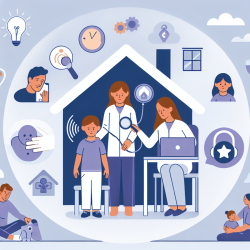The COVID-19 pandemic has highlighted numerous challenges faced by healthcare workers globally, with women comprising a significant portion of this workforce. The research article "Women healthcare workers’ experiences during COVID-19 and other crises: A scoping review" provides critical insights into the gendered effects of health crises on women healthcare workers. This blog aims to explore these findings and provide actionable recommendations for practitioners seeking to enhance their skills and support systems.
The Gendered Impact of Health Crises
Women healthcare workers have been disproportionately affected by crises such as COVID-19 due to several factors:
- Increased Risk of Exposure: Women often occupy roles that require high contact with patients, increasing their risk of exposure to infectious diseases.
- Lack of Access to Personal Protective Equipment (PPE): Many women report difficulties accessing appropriately fitting PPE, which is often designed based on male body sizes.
- Heightened Workload: The pandemic has exacerbated workloads for women, who also face increased caregiving responsibilities at home.
- Mental Health Strain: Women healthcare workers experience higher rates of anxiety, depression, and burnout compared to their male counterparts.
Recommendations for Supporting Women Healthcare Workers
The research highlights several strategies that can be implemented to better support women healthcare workers during crises:
Mental Health Support
Mental health interventions are crucial. Programs should be tailored to address the unique challenges faced by women in the healthcare sector. This includes providing access to counseling services, resilience training, and creating supportive work environments that prioritize mental well-being.
Economic Assistance
Crisis situations often exacerbate existing wage gaps. Providing hazard pay, paid sick leave, and childcare support can alleviate some of the financial burdens faced by women healthcare workers.
Leadership Opportunities
The underrepresentation of women in leadership roles within healthcare systems is a persistent issue. Encouraging women's participation in decision-making processes can lead to more inclusive policies that address their specific needs during crises.
Crisis Preparedness Plans
Crisis preparedness plans should be gender-responsive, ensuring that the unique needs of women are considered. This includes designing PPE that fits women properly and developing flexible work arrangements that accommodate caregiving responsibilities.
The Importance of Further Research
The scoping review underscores the need for continued research into the experiences of women healthcare workers, particularly in low- and middle-income countries where data is sparse. Understanding these dynamics is essential for developing effective interventions that promote gender equity in the healthcare workforce.
The findings from this research provide a foundation for practitioners looking to improve their skills and create more supportive environments for women in healthcare. By implementing these recommendations, we can work towards a more equitable and resilient health system that benefits all workers.










